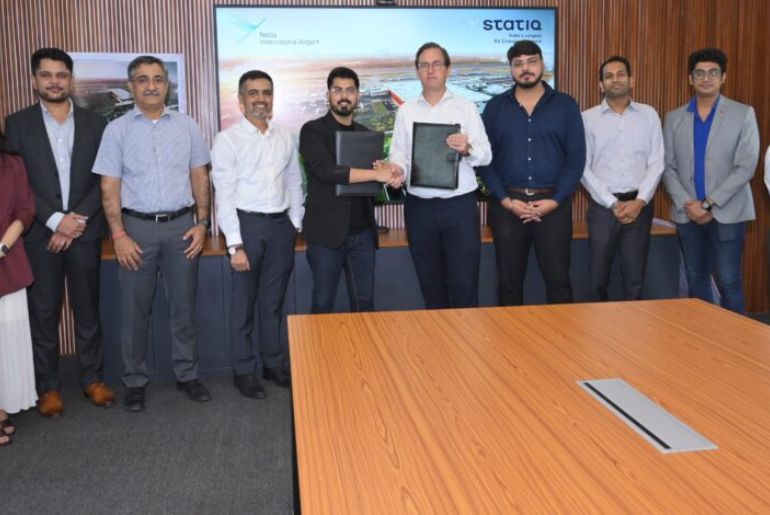In order to build a substantial airside EV charging infrastructure, Noida International Airport (NIA) has established a strategic cooperation with Statiq, the top electric vehicle (EV) charging network in India. Statiq will erect, run, and maintain the airside infrastructure for charging electric vehicles. This extensive EV charging network, intended to help the airport’s sustainability objectives and lower emissions across its operations, will be available to all concessionaires and airport cars.
The primary goal of the partnership is to set up infrastructure for electric car charging so that all airport partners can use electric ground support equipment (GSE) and other electric vehicles inside the airport. Statiq will deploy a combination of 7.4 kW AC chargers for smaller electric vehicles and 120 kW and 240 kW chargers for high-powered, quick charging requirements during the first phase of this agreement.
Commenting on the occasion, Nicolas Schenk, Chief Development Officer, Noida International Airport, said, “We are delighted to partner with Statiq, which has one of India’s largest electric vehicle charging networks. With Statiq’s expertise, we will ensure 24/7 availability of fast EV charging infrastructure for all airside operations, in line with our sustainable design and operations principles.
The airport’s ambitious sustainability ambitions will be supported by Statiq’s cutting-edge charging technology, paving the path for a cleaner future for the aviation industry in India. This partnership promotes greener mobility and is in line with national and international sustainability initiatives.
In order to create a contemporary and user-friendly experience that is inspired by India’s rich tradition, Noida International Airport will blend Swiss efficiency and technology with Indian hospitality. With one runway and one terminal, the airport’s initial phase will be able to accommodate 12 million people a year in traffic. After all four stages of expansion are finished, the airport will have the capacity to handle 70 million passengers annually.

